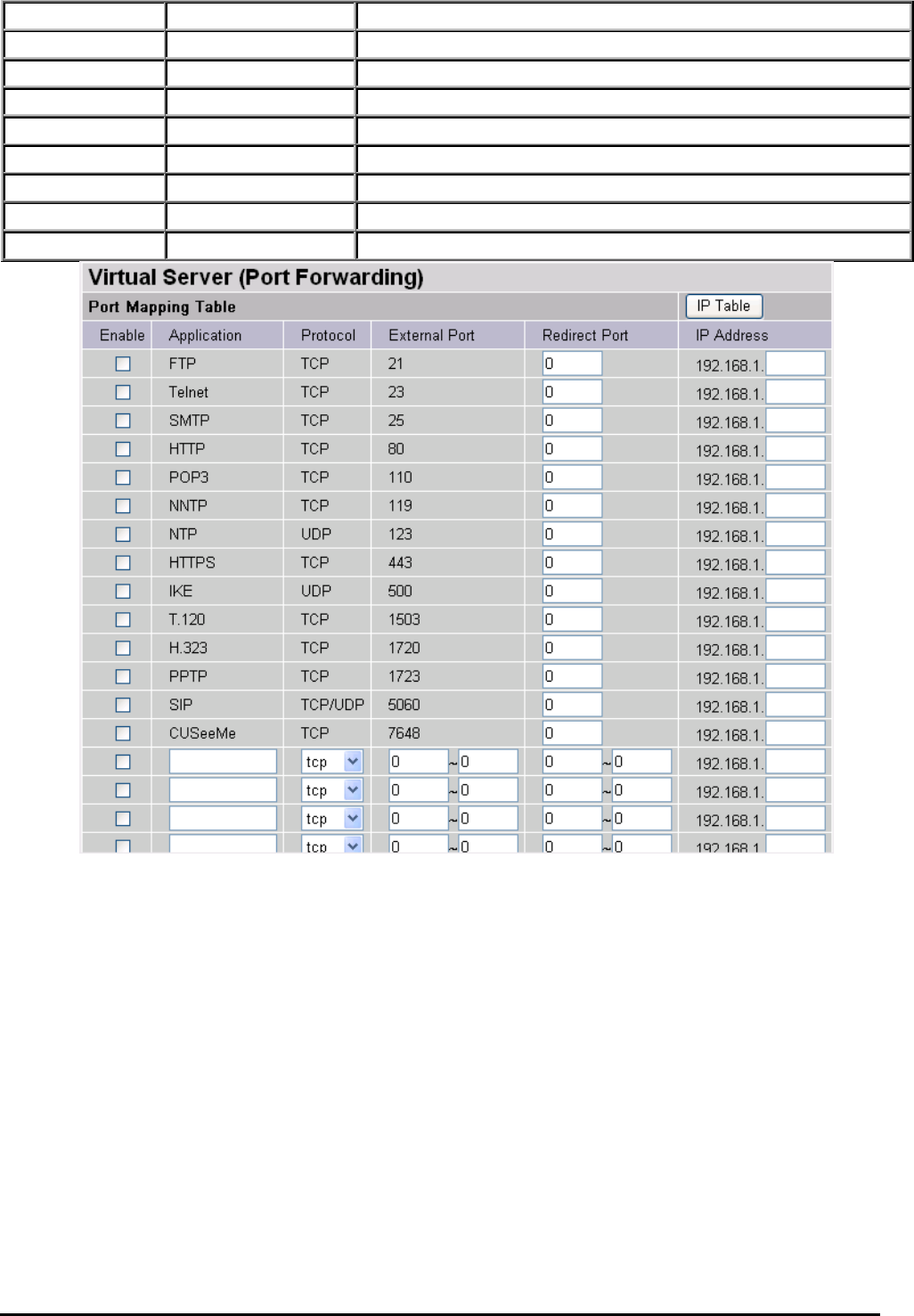
Billion BIPAC-7500G –802.11g ADSL VPN Firewall Router with 3DES Accelerator
Chapter 4: Configuration
110 TCP POP3 (Post Office Protocol Version 3)
119 TCP NEWS (Network News Transfer Protocol)
123 UDP NTP (Network Time Protocol)
161 TCP SNMP
443 TCP & UDP HTTPS
1503 TCP T.120
1720 TCP H.323
4000 TCP ICQ
7070 UDP RealAudio
Because NAT can act as a “natural” Internet firewall, your router protects your network from
being accessed by outside users when using NAT, as all incoming connection attempts will point
to your router unless you specifically create Virtual Server entries to forward those ports to a PC
on your network. When your router needs to allow outside users to access internal servers, e.g.
a web server, FTP server, Email server or game server, the router can act as a “virtual server”.
You can set up a local server with a specific port number for the service to use, e.g. web/HTTP
(port 80), FTP (port 21), Telnet (port 23), SMTP (port 25), or POP3 (port 110), When an
incoming access request to the router for a specified port is received, it will be forwarded to the
corresponding internal server.
For example, if you set the port number 80 (Web/HTTP) to be mapped to the IP Address
192.168.1.2, then all incoming HTTP requests from outside users will be forwarded to the local
server (PC) with the IP address of 192.168.1.2. If the port is not listed as a predefined
application, you need to add it manually.
In addition to specifying the port number to be used, you will also need to specify the protocol
used. The protocol used is determined by the particular application. Most applications will use
95


















